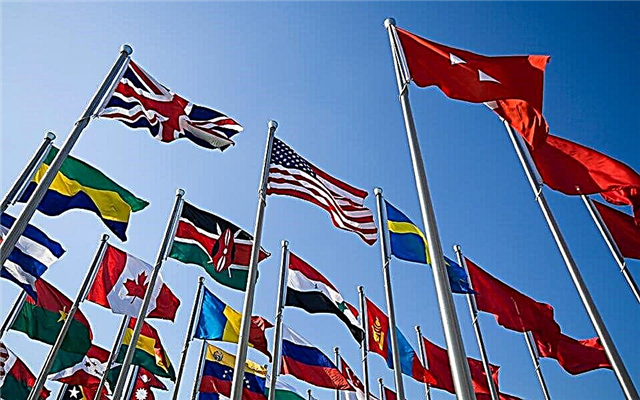The Russian language is great and powerful, there are a lot of words and phrases in it, hearing which you want to take and give the speaker a Russian language textbook.
Sit back, drink something soothing, because the topic of our article - the top 10 most annoying words and phrases - can make you angrier than the sound of iron on glass.
The selection is based on the opinions of users of the most popular entertainment forums in Runet, such as YaPlakal, Picabu, etc.
10. I heard you
What should this phrase mean? That one of the interlocutors has no hearing problems? Or, rather, that he heard what he was told, and immediately missed his ears.
In fact, the Russian phrase “I heard you” is tracing paper from the English “Got it!” ("Got it!"). For the British, this expression means that the speaker listened and understood the interlocutor, but he would draw conclusions from what he said on his own.
The Russian language is more emotional than English, so instead of the meaningless "I heard you" it is better to use another expression that will show your involvement in the dialogue. For example, “I completely agree with you” or “as I understand you.”
9. Man / woman in the meaning of "man / woman"
Peasants were traditionally called peasants in Russia, and now this word can mean both a man (including a husband or lover), and a rude, unpleasant person in communication. And the woman - in common people - is a woman.
In the 18th century, the terms "man" and "woman" even began to be used in the inventory of property and censuses. This was shorter than using the term “male souls” or “female souls”.
After the 1917 revolution, it became fashionable to be proud of its common, "peasant" origin. Men belonging to the working-peasant class were opposed to “drone” -bourgeois, and good career prospects opened before them. It was from the beginning of the 20th century that idioms such as “a real man” went.
But now in the yard is not the beginning of the 20th century. And if you do not want to offend the interlocutor or the interlocutor, it is better not to use these common names, they were long ago replaced by the words “man” and “woman”. Or “master” and “young lady”, if one really wants to “shake the old days”.
8. Cough up a question
When using this expression, an unpleasant picture arises in your head coughing right at you interlocutor, right? And in the context of the coronavirus pandemic, it even sounds like a mockery.
This expression goes back to the dashing 90s, when in the semi-criminal environment of “new Russian” businessmen their own jargon arose, which for a short time migrated to Runet. Fortunately, "coughing up a question" is a thing of the past, and is rarely used in conversation.
7. The little man

This word immediately shows a slightly dismissive attitude towards the interlocutor. After all, he is not even considered a full-sized person.
Sometimes a diminutive suffix (denyuzhka, yummy, little man) is used to emphasize one’s affectionate, good-natured attitude to the object or subject being discussed.
If you are at home and surrounded by the closest people, then experimenting with a diminutive suffix is not forbidden. But at work and even in personal conversations with friends it is better not to risk it. You never know how a little man will react to your tender little wrapper.
6. Yelling in the sense of “laugh”
The use of the word “yell” in the meaning of “laugh” arose even before the Runet. In the 90s of the 20th century in Omsk the expression "let's go by the sea" was common, meaning "let's go and have fun."
Of course, with laughter you can scream loudly from an excess of emotions, but for most of the interlocutors the word "yelling" is associated with fear, pain or another unpleasant sensation, but not with fun.
5. The extreme in the meaning of "last"
This is one of the most annoying words in the Russian language, if used out of place. Initially, it was used by people whose professions are associated with a great health risk - pilots, climbers, etc. For them, the last time could really be the last.
But if you are an office worker, or a representative of another completely safe profession, then why should you be afraid of "extreme times"?
Some philologists explain the superstitious fear of the word “last” in everyday life by the fact that this adjective has a negative connotation with the meaning “worst in a row”.
But all connoisseurs of the Russian language agree that replacing the word “last” with the word “extreme” is a gross mistake that a well-educated person should not make.
4. Very beautiful
This annoying phrase is an example of the misuse of the superlative adjective. Saying “very beautiful” is like “oil butter”.
3. Onion in the meaning of "image"
The word “onion” (look), which came into Russian from English, immediately gives rise to associations with a person who, instead of clothes, put on a giant onion. Or he picked up a bow and now for some reason plays Robin Hood.
If your conversation is not limited to a couple of seconds, for which you need to have time to blur out “you have a fashionable bow”, then do not be too lazy to use the words more familiar to the Russian ear - “dress”, “image”.
2. Tasty in the sense of “good, interesting”
Delicious music, delicious cinema, and even a delicious book are unlikely to be a mouth-watering snack on your table.
However, the use of the word “tasty” as applied to non-food objects is not a linguistic mistake, it all depends on perception. Many people are angry with this expression, but the sensory even like it. After all, they, lovers to touch, touch and taste, compare anything with their bodily experience.
1. Luxury
It is interesting that you, dear readers, are the first to think of the word "luxury"? For some reason, for some reason, I think of a house with an abundance of clumsy stucco moldings, a gold toilet, or the last iPhone on credit.
In the literal translation from English, Luxury means wealth, luxury and splendor. But in Russia, luxury is not just wealth, but on display. This word annoys with its alienness, and is often used in colloquial speech completely out of place, only to brag to the interlocutor.












